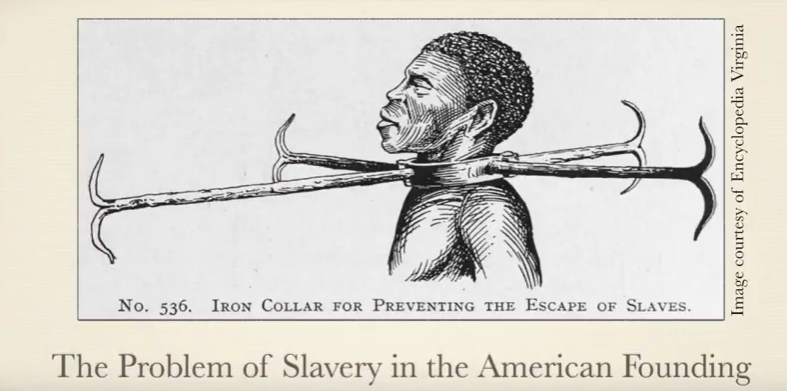Academy
IDEAS WAITING TO BE DISCOVEREDAnd used. By you.
The only way to know whether change is good or bad, progress or regress, forward movement or backward, is to measure it against something permanent, something immutable, something unchanging.
What never changes? What never deteriorates, dissipates, or fades? Ideas. In the stormy course of human events, a sound idea can be like the North Star for sailors in stormy seas: a guide.
The Speakeasy Ideas Academy video courses below focus on human events, some recent, some not, and the ideas that illuminate the meaning of those events—ideas that can help you make better choices and get more of the good things you want in life.
Each video is approximately 45 minutes long. If you decide you want an entire video, simply click the “Get Video” button. You’ll be directed to PayPal. After your purchase of $2.29—which helps us keep the Speakeasy Ideas doors open and lights on—you’ll receive an email receipt from PayPal. That receipt will include a link to your video. Just click, watch, and enjoy
Current Political Topics
Private Property & Public Accommodations Laws – Part I
Does it matter what religious beliefs a business owner
holds? Or what sexual preferences a potential customer has? This pre-recorded educational video cuts to the core conflict in the growing numbers of cases that involve business owners and public accommodations laws.
Private Property & Public Accommodations Laws – Part II
Part II expands the discussion of public accommodations laws by addressing three questions: 1) Is unjust racial violence the alternative to public accommodations laws? 2) Are public accommodations laws constitutional? 3) Is discrimination intrinsically wrong and bigoted?
The Origin of Identity Politics
Progressive academics borrowed from 19th Century European philosophy and held that different groups and races of people evolve at different rates, and therefore have different kinds of rights at different points in evolutionary time, depending on the political “capacity” they had demonstrated. This is the basis of what we call “identity politics” today, the view that different groups of people deserve different kinds of rights.
Political Science of the American Founding
SIA 101: Declaration of Independence – Part I
Lincoln argued that the ideas contained in the Declaration are indispensable for freedom, yet many influential Americans today reject those ideas.
SIA 101.2: Declaration of Independence – Part II
To judge whether the principles of the Declaration are true or false requires that we understand them as they were understood in 1776.
SIA 101.3: Declaration of Independence – Part III
“The laws of nature and of nature’s God” is a philosophic term of art. Let’s clarify what it does and does not mean.
SIA 101.4: Declaration of Independence – Part IV
Can any truth be “self-evident?” That all depends on what “self-evident” means, which is the focus of this video class.
SIA 101.5: Declaration of Independence – Part V
The human nature that all human beings share contains within itself the source of self-government.
SIA 101.6: Declaration of Independence – Part VI
Combining justice with the consent of the governed is easy in theory, difficult in practice.
SIA 101.7: Declaration of Independence – Part VII
Revolution is sometimes necessary, always dangerous, never to be viewed lightly or dismissed easily.
SIA 101.8: Declaration of Independence – Part VIII
The Declaration’s indictments against King George III provide a blueprint for a constitution of freedom, private property, and justice under the law.
SIA 101.9: Declaration of Independence – Part IX
Conditions of freedom: A summary of the political science of the Declaration with an emphasis on the civic virtues free citizens should exercise.

SIA 101.10: The Problem of Slavery in the American Founding – Part I
Any study of the history of slavery should begin by acknowledging that slavery is accepted as traditional, or right, in a bad regime, while in a good regime slavery is viewed as a problem.

SIA 101.11: The Problem of Slavery in the American Founding – Part II
Thomas Jefferson was the main author of the Declaration of Independence. And he owned slaves. What are we today to make of that?

SIA 101.12: The Problem of Slavery in the American Founding – Part III
Thomas Jefferson questioned whether black people and white people were equal in certain talents. And, he argued that differences in talents do not alter or affect universal equal natural rights.

SIA 101.13: The Problem of Slavery in the American Founding – Part IV
Slavery compromises in the United States Constitution: Would you have voted in support of them of them had you been in the Convention of 1787?

SIA 101.14: The Problem of Slavery in the American Founding – Part V
Anti-slavery, pro-freedom words and actions in the American Founding.
